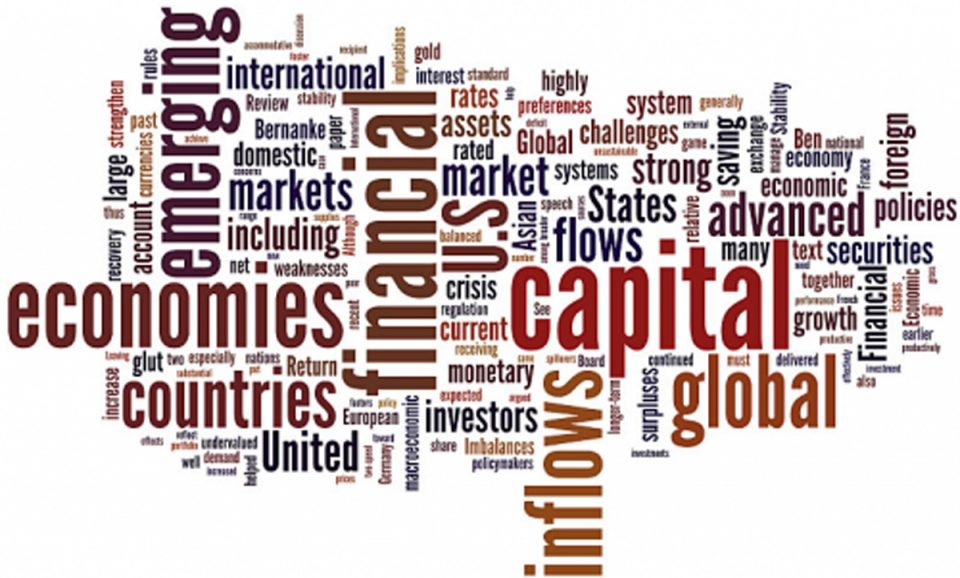Economists view the performance of the nation’s economy in 2019 as a platform for building stronger economic position in future years.
According to them, the country needs to promote and implement policies that are favourable to non-oil sector to achieve significant leap into a viable economy capable of enliven the lives of the masses.
Unarguably, Nigeria’s economy stands strongly on government revenues and oil and gas as the main source of foreign exchange earnings, although the present administration has taken steps to diversify to include non-oil sector.
With this effort, Nigeria’s economy in 2019 did not only improve but was rated among the top five global economies that excel.
The World Bank in its report even declared Nigeria as one of the most improved economies of the world.
It counted Nigeria among the few countries that implemented one-fifth of all reforms recorded worldwide in 2019.
Also, “Doing Business 2020’’ — a World Bank Group flagship publication — measures the regulations that enhance business activity and those that constrain it finds Nigeria to be one among the few countries with the most notable improvement.
Economists note that, further to this feat, Nigeria’s economy has prospect if it promotes and implement policies favourable to non-oil sector to improve the Gross Domestic Product (GDP).
They note that 2019 saw an upscale in tax administration, particularly the increase of Value Added Tax (VAT) on more items and other charges such as Stamp Duty on every Point of Sale transaction (POS)
Mrs Lolade Adesola, an economist and Chief Executive Officer of L.A. Consult in Ibadan, observes that the country’s GDP is growing so far.
“I observe that the naira has been stable and with the new economic team that was put together recently by President Buhari.
“The fact that there is going to be better tax administration and transparency portal set up as well as the new economic team, these are some of the things that would contribute to the improvement of the economy’’, she observes further.
Similarly, Dr Olumuyiwa Alaba, a policy economist, notes that Nigerian economy by GDP has improved, waiting for how the growth will translate to enlivening the lives of the masses.
“The level of inequality in the society does not justify the kind of growth we experienced and government needs to do more to ensure this is not so in 2020.
“It is the non-oil sector that really employs more people and I don’t think we have any appreciable growth in this sector.
“Government needs to critically look into this sector and address issues that will drive the non-oil sector,’’ he advises.
The economist, however, advises the government to borrow externally as it has more advantages than internal borrowing.
“Government remains the largest domestic borrower in Nigeria, the banks thought it more guaranteed and lucrative because of the money policy rate when they give loan to government.
“When government sells Treasury Bills every two weeks, it is actually borrowing and when government borrows too much in an economy, it will crowd out what the private sector has access to.
“External borrowing gives an inflow of foreign exchange which means it can decrease the pressure on the country’s foreign exchange flows; meaning naira can appreciate.
“Secondly, foreign borrowing comes at a very low interest rate and the country can negotiate the rate which makes it better than domestic borrowing,’’ he explains.
He advises, however, that the most important thing is for the country to use the money borrowed for the purpose it is meant for, particularly on things that will grow the economy.
Alaba further advises that the government in 2020 ought to be purposeful in terms of direction to change the tide of events for the nation in the coming years.
“There should be a concrete economic policy; the Central Bank of Nigeria (CBN) has put monetary policy rate at a slight decrease for some quarters now just like it was some five years ago.
“The monetary policy rate has remained at the same level because of some basics CBN wants to maintain but you can’t do something the same way and expect different outcomes, this won’t work.
“We need to be consistent in our border closure with respect to trade protocols and agreements signed with other countries and regions.
“The protocols leave room for manipulate some safeguards and remedies but you need to inform your neighbours as well as justify the need for the border closure.
“More importantly, we need to put measures in place to take advantage of the border closure so that when we eventually open, our manufacturers would have been committed to producing quality goods that would compete anywhere in the world,’’ Alaba observes.
According to him, government cannot continue to intervene in foreign exchange markets as it is not a sustainable solution anywhere in the world.
He, nonetheless, notes that government can invest millions of dollars used to defend foreign exchange every week or periodically on infrastructure.
“This will bring the desired outcome that can boost production and manufacturing sectors that will, in turn, grow the nation’s economy.
“Government cannot hold foreign exchange market forever; it should leave the market to find its own path.
“The money expected to be spent on foreign exchange should be used as an intervention fund for infrastructure.
“If the economy booms and we are able to export non-oil sector goods to other countries, we will generate that foreign exchange that will stabilise the market as it is in Qatar and Ghana that are increasing their non-oil sector,’’ he said.
Alaba, therefore, warns that the current arrangement of defending foreign exchange will remain business platform for some people to make profit for themselves as the black market rate is always higher than the official rate




